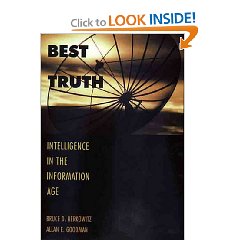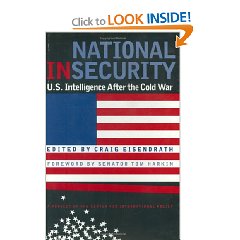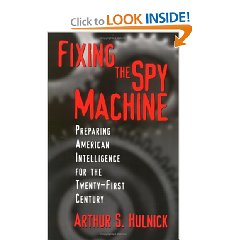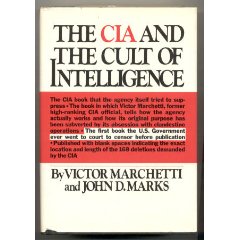Review: National Insecurity–U.S. Intelligence After the Cold War
4 Star, Intelligence (Government/Secret)A project by the Center for International Policy, founded by Senator Tom Harkin (D-Iowa), this book brings together a series of chapters that are largely anecdotal (but reasoned) pieces from former foreign service officers recalling all the terrible things CIA did or did not do while they were in service. It includes a chapter by Mel Goodman that some thought was to have been a full-blown book. The chapter by Richard A. Stubbing on “Improving the Output of Intelligence: Priorities, Managerial Changes, and Funding” is quite interesting. There is a great deal of truth in all that is presented here-Ambassador Bob White, for example, was in El Salvador when I reported, a graduate thesis on predicting (and preventing) revolution in my past, and I remember vividly our conversation about the need to suppress the extreme right if we were to stabilize the country.

Review: Fixing the Spy Machine–Preparing American Intelligence for the Twenty-First Century
4 Star, Intelligence (Government/Secret)This book has two good features-the author really does understand the personnel issues, and hence one can read between the lines for added value; and the book is as good an “insider” tour of the waterfront as one could ask for. How the book treats the CIA-FBI relationship, for example, is probably representative of how most CIA insiders feel. The book does not reflect a deep understanding of open sources and tends to accept the common wisdom across the intelligence bureaucracy, that all is “generally okay” and just a bit of change on the margin is necessary. In this respect, it is a good benchmark against which the more daring reformist books may be measured.









